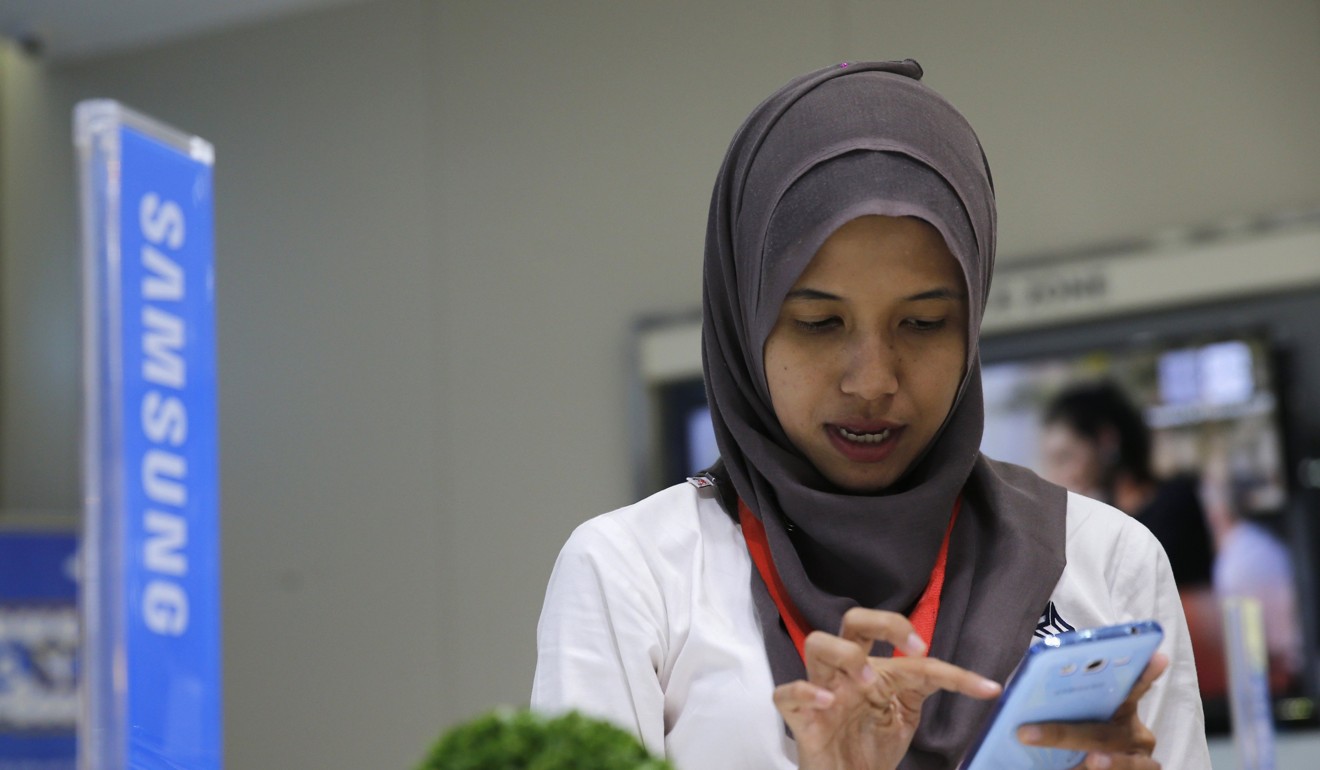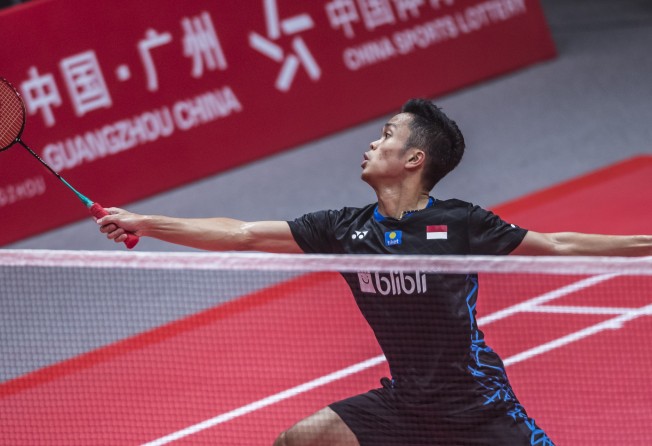
Cyberbullied athletes push back amid rise of nationalism on social media
- Facebook is the most popular platform in Indonesia, with 130 million users followed by Instagram with 53 million

Despite suffering a severe hamstring injury at the end of the second game, Indonesian badminton player Anthony Sinisuka Ginting soldiered on to the end of the two hour, three game match in the men’s finals of the 2018 Asian Games, coming in second place against his Chinese counterpart.
After Ginting was carried off the court on a stretcher in agony it wasn't the congratulatory note from Indonesian President Joko Widodo that captured the public's attention. Rather, it was the wave of anger vented at the 22-year-old on social media.
“You are the dumbest Indonesian player of all time,” said one Instagram post. “Don’t only use your muscles when you play, but also your brain!” was the insult from another. “Don’t you feel sorry for the supporters that already cheered for you? Moron!", said yet another post that received a number of likes.
The social media tsunami Ginting experienced on Instagram – 30,000 mostly negative comments posted in a day – is an all-too-common example of the added stress athletes must endure, especially when they compete on behalf of their countries. While feelings of nationalism often reach fever pitch during competitions like the Olympics or Asian Games, the real-time feedback and escalating verbal abuse in cyberspace has become a harrowing new reality that many athletes are ill-equipped to deal with.
“Diehard fans always demand victory,” said Nukman Luthfie, a digital media practitioner in Indonesia. “They do not care about the process.”
Nearly half of all Indonesians are active social media users, according to the 2018 Global Digital Report published by UK consultancy We Are Social in conjunction with Hootsuite, a social media management platform. Facebook is the most popular platform, with 130 million users followed by Instagram with 53 million.
Hate speech spread via social media has become a problem in the country, with the government working with the platforms to close down some accounts used for this purpose. As well as targeting athletes, the abuse was rampant during local elections in June this year, resulting in the deactivation of 90 accounts.
Ria Meswara, an account executive at a pharmaceutical company in Indonesia, was one of those who expressed her outrage online after Ginting’s match. She said she was justified in calling him “useless” because Ginting had made errors before getting injured.
“If only he won, Indonesia would have had a greater chance to win a gold medal for the men’s team,” she said in an interview by email.
The fact that athletes often compete on behalf of their countries means those representing powerful nations or regions involved in territorial disputes suffer the most. American tennis player Madison Keys was abused on social media after she lost her match in the semi-finals of the China Open in 2016. She later opened up on Instagram about how she overcame cyber-bullying, and has since become an ambassador for Fearlessly Girl, an international female empowerment group that fights bullying.
Russia’s 19-year-old figure skating celebrity Evgenia Madvedeva became a lightning rod after she ended an 11-year relationship with her coach Eteri Tutberidze a few months after she won a silver medal at 2018 Pyeongchang Winter Olympics. Her decision to work with a Canadian coach drew taunts and castigation from netizens in both countries, who posted nasty comments on YouTube and Twitter. Meanwhile, Fatin Syahirah Roszizi, a Malaysian skateboarder, was attacked for underperforming at the 2018 Asian Games.
The shield of anonymity is one reason why people tend to speak harshly on Twitter or Instagram, according to Linda Darmajanti, a sociologist in Indonesia. People often do not filter their language when they are anonymous, unlike when they are engaged in a conversation in the real world, she said.

“If you have direct face to face interaction, you will get feedback immediately, which is a part of social control,” she said.
Social media abuse is a new reality that more athletes and coaches are having to deal with. Hendry Saputra, Ginting’s coach, said all athletes should be prepared for negative reactions from the public as the internet is now the go-to medium for people to view and discuss sports events. “I told my athletes, if they want to learn something, don’t expect to be praised,” said Saputra, adding that he believes a support network is needed.
Already, national teams in Indonesia are seeking professional help to deal with cyber bullying. When organisations like the Badminton Association of Indonesia help athletes mentally prepare for their competitions, they include a session on how to weather social media criticism. One piece of advice is that athletes should not use social media or read online comments the day before they compete, said Rachman Widohardhono, a psychologist at the association.
Southeast Asian athletes are not alone in the fight against cyberbullying. Luthfie said the Indonesian government is working with selected public organisations to introduce a programme which improves digital literacy in schools and educates citizens about social media.
“To make it successful, we cannot only rely on government. The community should also participate to educate others,” he said. “We need education about law and ethics regarding the use of the internet.”